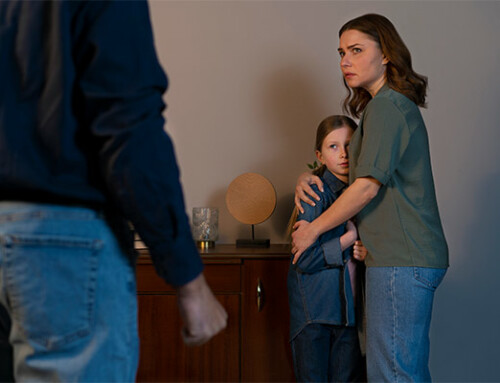On 6th April 2022, a significant change was made in Family Law for England and Wales. For the first time, one spouse is now able to make a statement to the court that their marriage has ended without having to prove it is over or explain why it has ended. The statement itself, even if only made by one spouse, is enough for the court to be able to grant divorce after a 20 week “cooling off period” without needing any further information about why the spouse believes their marriage is over.
This change has been hailed as revolutionary. Before it was made, the law in England and Wales required what has been recognised as “blame” to prove a marriage had ended. The spouse who wanted a divorce had to prove their spouse had committed adultery, behaved so unreasonably the marriage couldn’t continue or had deserted them. If they couldn’t do this, they needed to wait until they had been living apart for two years, if the other person agreed to divorce, or otherwise until they had lived separately for five years.
Campaigners for the change in the law have said that the acrimony will be reduced now that people aren’t required to blame or explain why the marriage is over. They say this will help, for example, people with children who need to be able to co-parent even though their marriage has ended. Other people have pointed out that effectively your marriage can be whipped away from under you in a matter of months without you being able to exert any control over this. If you think your marriage isn’t over, this could be very traumatic. Divorce can be an extremely painful emotional process, and time for healing is important.
So, what about no-blame divorces in Scotland?
The starting point is recognising that Scottish Law of divorce is very different to English law. In England, you can get divorced then start looking at the couple’s potential financial claims such as selling properties and dividing pensions if this hasn’t already been sorted out. In Scotland, divorce is the last step. Parties need to reach agreement about their finances before decree of divorce is granted, otherwise a court will make orders about this before or at the same time that divorce is granted. Once divorce is granted, orders about finances can only be made in extremely limited circumstances. If you haven’t made a financial claim when divorce is granted, your right to do so is likely to be extinguished.
In Scotland, you can only apply for a divorce if you can prove your marriage has broken down, with no prospect of repair. You can prove this in three ways:
-
Your spouse’s adultery – this is a sexual relationship with someone of the opposite gender;
-
Your spouse’s behaviour being so unreasonable that you can’t be expected to continue your marriage; or
-
That you and your spouse have lived separately for one year, if they agree, or otherwise for two years
The vast majority of divorces in Scotland are based on one or two years of separation which is cheaper and less confrontational. However, there is no way to speed this up. The date of separation is factual.
It doesn’t matter to the court which ground you use, as long as you can prove it. The final court order doesn’t say why you got divorced. The court is not there to judge the morality of your relationship. You don’t get a better settlement because your spouse cheated on you unless you can prove that the affair was funded using matrimonial money, and even then, it would need to be a reasonable amount for the court to consider it.
It is quite common for one spouse to want to progress the divorce faster than the other person. This might be because one person wants to stay in a family home for as long as they can, or because they are entitled to spousal maintenance, which we call aliment, whilst they remain married. For some people, they need the time to mourn the end of the marriage before they are ready to start making important decisions about their finances.
Marriage is an extremely significant undertaking. The traditional protestant ceremony states marriage is not to be entered into lightly or selfishly but reverently and responsibly. This rings true even if you are not religious simply because of the complex legal contract which is created at a wedding ceremony. It is a contract which can only be ended by death or a court. Being married creates legal rights and responsibilities. You are required to support your spouse, and you are required to share assets or debts created by individual or joint income and efforts during the marriage.
Divorce is also a significant undertaking. It involves an inevitable upheaval to the lives of the couple, their children and sometimes their wider family. Scottish Law recognises this by expecting spouses to prove their marriage is over to the court before the marriage can be ended. Time is built in to allow parties to adjust to the change in the circumstances.
The most important outcome for most separating couples, after making arrangements for any children, is division of their property and finances. It is difficult, if not impossible, for most couples to proceed directly to court as soon as they separate because they don’t have acceptable proof for the court that their marriage is over. This means that there is time to attempt to negotiate matters through solicitors or through alternative dispute resolution like mediation. This also allows time to heal from the breakdown of the marriage. In the vast majority of cases, this time allows the couple to reach an agreement and then their divorce can be processed administratively without anyone needing to go into a court.
If you would like further advice about separation and divorce, please telephone 0131 622 8477 to make a free 15 minute, no obligation appointment with one of our family law solicitors.







